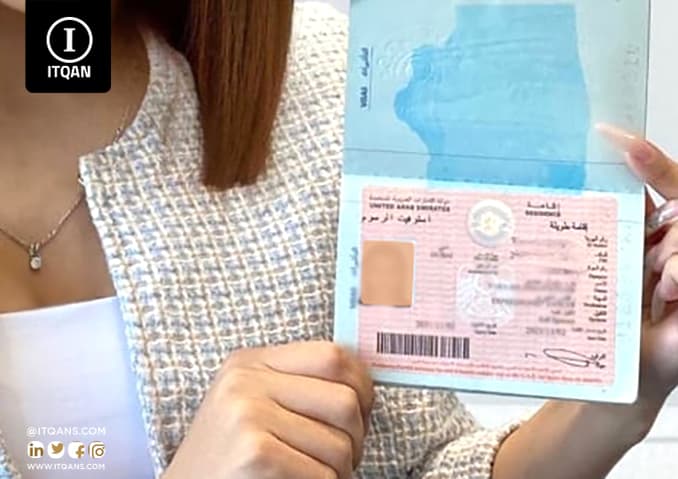Establishing a company in Dubai represents a strategic investment step given the advanced and encouraging business environment provided by this Emirati emirate. The costs of starting a company in Dubai vary based on several factors such as the type of company, location, and planned business size, which requires accurate estimation of expenses and good preparation before starting.
The basic costs of setting up a company in Dubai include registration and licensing fees required by the Department of Commerce and Industry, as well as legal and accounting consulting costs that help guide the company through the incorporation process and comply with local laws.
Costs are not limited only to government fees, but also include customer and office costs if required, and the capital needed to start the business. The appropriate location for the company must also be determined, whether within a free zone or within local legal systems, which also affects costs and additional needs such as labor and operational space.

Costs of setting up a company in Dubai
جدول المحتوى
ToggleEstablishing a company in Dubai
To establish a company in Dubai , you need to follow several basic steps:
- Choose the type of company: You can choose between several types of companies such as a limited liability company (LLC), a sole proprietorship, a public or private joint-stock company, or a free-range company.
- Choosing a company name: You must choose a unique name for your company and ensure that it complies with local laws and legislation.
- Identification of shareholders and directors: Identify the shareholders and directors of the company and ensure that all documents required to register them are available.
- Preparing legal documents: Prepare the necessary contracts and documents such as the social contract, the company’s articles of association, powers of attorney, and government approvals.
- Submitting the application and registration: Submit the required documents to the Department of Economic Development or the competent authority to register the company, and follow the approved legal procedures.
- Obtaining licenses and permits: Obtain the necessary licenses from local authorities and relevant authorities depending on your company’s activity, such as municipal and commercial licenses.
- Opening a bank account: Open a bank account in the company’s name to manage financial and commercial transactions.
- Social Security Registration and Taxes: Register the company with Social Security and review the tax authorities for tax compliance.
Types of licenses in Dubai
In Dubai, there are several types of licenses that companies can obtain depending on the type and scope of their activities. Here are some of the main types of licenses in Dubai:
- General Commercial Activity License: This license allows companies to engage in general commercial activities, such as retail and public services.
- Professional Business License: This license allows individuals to practice professional activities such as medicine, law, accounting, and engineering.
- Free zone business license: This license grants companies to operate in one of the free zones in Dubai, while benefiting from tax exemptions and flexible regulations.
- Self-employed license: This license allows individuals to practice their work individually without the need for a formal corporate structure, such as artists, writers, and designers.
- Tourism activity license: This license allows companies to organize tourism activities such as tourist trips and entertainment events for visitors.
- Industrial Activity License: Allows companies to produce and manufacture goods and products in designated locations within Dubai.
Costs of setting up a company in Dubai
The costs of setting up a company in Dubai vary depending on the type of company and where you choose to establish it, such as the mainland or a free zone. Here are some points that can affect the costs of setting up a company in Dubai:
- Licenses and permits costs: Establishing a company in Dubai requires paying fees to obtain the necessary licenses and permits from the local authorities and the Department of Economic Development or the relevant authority.
- Required capital: Some types of companies in Dubai (such as a limited liability company) may require a certain initial capital to be in the company’s account before registration.
- Costs of consulting and legal services: You may need to consult legal or accounting professionals to assist you in the company formation process, which results in additional costs.
- Rent and office costs: If you plan to rent an office, you will have to pay the required rental fees in the area you choose for your company’s location.
- Insurance and social security costs: You must cover the costs of employee health insurance and social security in accordance with local legislation.
- Costs of opening a bank account: There can be costs to open a bank account depending on the bank you choose and the type of services required.
Types of companies available in Dubai
In Dubai, there are several types of companies that investors can establish depending on the type of activity and legislative requirements. Here are some common types of companies in Dubai:
- Limited Liability Company (LLC): The most popular option among small and medium-sized businesses, business owners have limited liability limited to the size of their investment in the company.
- Sole proprietorship: allows an individual to start and manage his own business without partners, and liability is unlimited by the amount of invested capital.
- Company in the free zone: Dubai free zones provide an excellent environment for business, with full or partial tax exemptions and flexible regulatory rules.
- Public Company: It is characterized by issuing shares to the public and individuals can buy and trade them on the financial market.
- Private Joint Stock Company: Owned by a limited group of individuals or companies, responsibility and profits are divided according to the partners’ agreement.
- The company’s investment companies: aim to invest clients’ money and are managed by financial institutions, banks, and financial institutions.
Promising investment opportunities in Dubai for new companies
In Dubai, there are many promising investment opportunities that new companies can explore. Here are some key opportunities:
- Real estate and infrastructure: Dubai is witnessing continuous growth in the real estate and infrastructure sector, which provides investment opportunities in developing residential and commercial real estate projects, and industrial projects.
- Technology and Innovation: Dubai’s technology and innovation sector is a thriving area, with advanced digital infrastructure and government support for startups and technology companies.
- Tourism and Hospitality: Dubai is a global tourist destination, making the hospitality and tourism sector an exciting opportunity to invest in hotels, restaurants, and tourism services.
- International Trade and Logistics: Thanks to its strategic location, Dubai is a major hub for international trade and logistics, providing investment opportunities in the shipping, warehousing and distribution sectors.
- Renewable energy and sustainability: There are great opportunities for investment in the fields of renewable energy and sustainability, with Dubai’s commitment to achieving the goals of renewable energy and a clean environment.
- Financial services and insurance: Dubai provides a suitable environment for financial services and insurance companies, with the presence of international financial institutions and emerging financial markets.
- Education and Training: Investment opportunities in the education and training sector, with increasing demand for international education and specialized skills.
Documents required to establish a company in Dubai
To establish a company in Dubai , the type of documents required depends on the type of company and the region in which you choose to establish it. However, here is a general list of basic documents you may generally need:
- Personal documents: Passport or ID card for shareholders, directors and main partners.
- Residency Document: For shareholders and directors, there may be specific residency requirements for some nationalities.
- Commercial Plan: A detailed document that explains the company’s proposed activity and its plans for growth and expansion.
- Partners Agreement (if applicable): For multi-partner companies, details of the agreement between the partners including their shares and responsibilities.
- Certificates of professional qualifications and licenses: If the company operates in a sector that requires professional licenses such as medicine, engineering, and accounting.
- Bank documents: The company’s bank account information and a confirmation letter from the bank regarding the company’s account.
- Real estate documents: If the company owns or leases real estate, you may need documents confirming ownership or rent.
- Government approvals: Different licenses depending on the type of company, such as a general commercial license or a license in a free zone.
- Financial Reports: Updated financial reports that show the company’s financial continuity and ability to repay.
At the conclusion of this article, we conclude that establishing a company in Dubai requires good financial and administrative preparation, as costs are affected by several factors, including the type of company, location, and required services. Basic costs include company registration, licensing fees, rental costs if the company is outside the free zone, as well as labor, marketing and infrastructure costs.
Although start-up costs may be high, Dubai offers a unique investment environment that stands out thanks to its diverse and dynamic economy and government support for businesses. These costs are an investment in the future with great opportunities for financial returns and sustainable growth in an innovative and economically stable market.
The most important frequently asked questions about setting up a company in Dubai
What tax benefits are available to companies in Dubai?
Free zones in Dubai offer full or partial tax exemptions on profits, while companies in local legal systems are subject to specific taxes on profits, income and value added.
Can I move my company from one free zone to another within Dubai?
Yes, companies can be transferred from one free zone to another with the approval of the official authorities, and based on the specific principles for each zone.
What regulations and laws must be adhered to when setting up a company in Dubai?
Companies must comply with a range of local laws and regulations, including labor laws, taxes, and corporate legal regulations.
What additional services can consulting or legal firms provide during the company establishment process?
Additional services include assistance in preparing documents, providing legal advice, assistance in selecting a suitable location and facilitating administrative procedures.

















